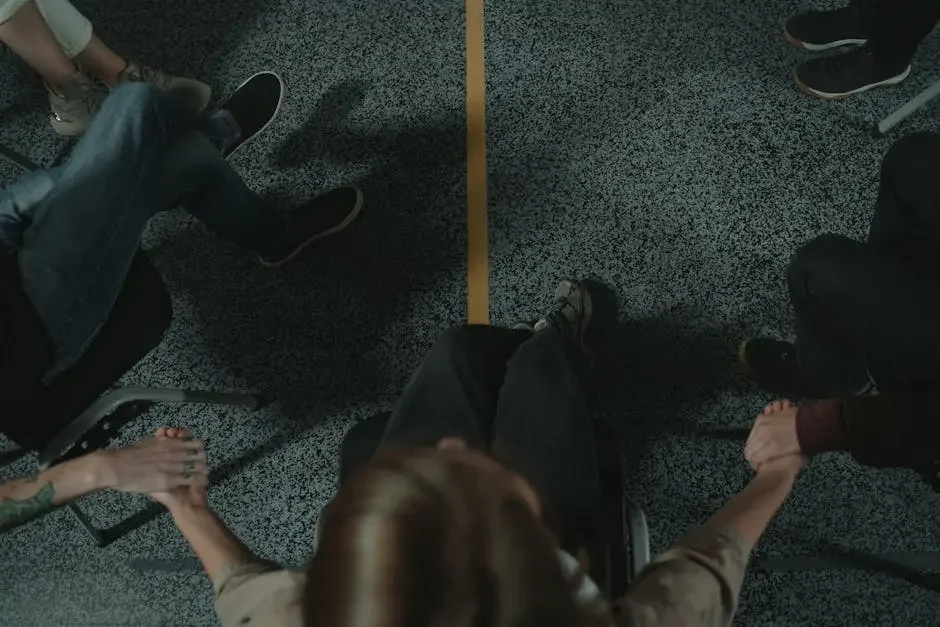How Does Relationship Therapy Support BIPOC Communities?
Relationship therapy can be a powerful tool for healing and strengthening bonds. But for BIPOC communities, it’s crucial that therapy acknowledges and addresses unique cultural experiences and systemic challenges. Let's explore how relationship therapy can be tailored to support BIPOC individuals and communities effectively.
Understanding Cultural Context
Therapists are trained to appreciate and integrate the rich cultural backgrounds that BIPOC clientele bring into therapy. This fosters an understanding and respect that is foundational for effective therapy.
In relationship therapy, acknowledging cultural context is particularly important for BIPOC communities. Cultural values, traditions, and norms influence how individuals relate to one another and can shape their expectations and behaviors within relationships. For example, a family-oriented culture may prioritize close-knit relationships and collective decision-making, while another culture may emphasize individualism and personal autonomy.
Understanding these nuances allows therapists to tailor their approaches in relationship therapy, ensuring that interventions are not only effective but also respectful and empowering. This cultural competence enables therapists to avoid misunderstandings and misinterpretations, thereby fostering a more supportive and effective therapeutic environment.
Addressing Systemic Issues
Therapy for BIPOC individuals often includes discussions of discrimination and systemic barriers that impact relationships. Therapists can guide clients through these topics, providing support and strategies to handle external stressors.
Systemic racism and discrimination can place significant strain on relationships within BIPOC communities. As individuals navigate these challenges, they may experience heightened stress, anxiety, or depression, which can affect their interactions with partners, friends, and family members.
Therapists play a key role in helping clients recognize these systemic factors and their impacts. By discussing these issues openly, therapists can empower clients to develop coping mechanisms and communication skills that enhance their resilience and improve their relational dynamics.
Promoting Communication and Connection
Relationship therapy encourages open, honest communication—a skill that can be challenging for those who have faced cultural or familial pressures to remain silent. This part of therapy can help bridge gaps between partners or family members.
Effective communication is vital for healthy relationships, yet it's often one of the most challenging aspects for many couples and families. For BIPOC communities, cultural differences in communication styles can lead to misunderstandings and conflicts.
Therapists work with clients to enhance their communication skills, helping them express their needs and listen actively to others. By practicing these skills in therapy, clients can build stronger connections and foster harmonious relationships.
Using Culturally Relevant Techniques
Incorporating culturally relevant techniques, such as storytelling or community-based interventions, makes therapy more accessible and relatable for BIPOC clients, enhancing the overall therapeutic experience.
Culturally relevant techniques such as storytelling, art, and community rituals can deeply resonate with BIPOC clients. These culturally infused methods can help clients process emotions, share personal experiences, and connect with their cultural identity in a therapeutic context.
By integrating these approaches, therapists can create a therapeutic environment that respects and elevates cultural expressions, making therapy a more empowering and affirming experience for BIPOC individuals.
Creating Safe Spaces
A welcoming, non-judgmental therapeutic environment is crucial. For BIPOC communities, knowing that their therapist respects and validates their experiences can make all the difference in the healing process.
Creating safe spaces in therapy involves establishing a supportive and inclusive environment where BIPOC clients feel heard, understood, and respected. It's about affirming the diverse experiences of clients and challenging any biases or stereotypes.
Therapists dedicated to fostering safe spaces often engage in ongoing cultural competency training and self-reflection. This commitment ensures that therapy remains a haven for clients seeking relief, understanding, and growth. By offering these secure and welcoming spaces, relationship therapy can be a transformative experience that nurtures both personal and relational healing.
Conclusion
Relationship therapy offers BIPOC communities an opportunity for healing that respects their unique experiences and challenges. By focusing on culturally sensitive practices, addressing systemic issues, and providing a safe space, therapy can help nurture healthier, more resilient relationships.

